Recent
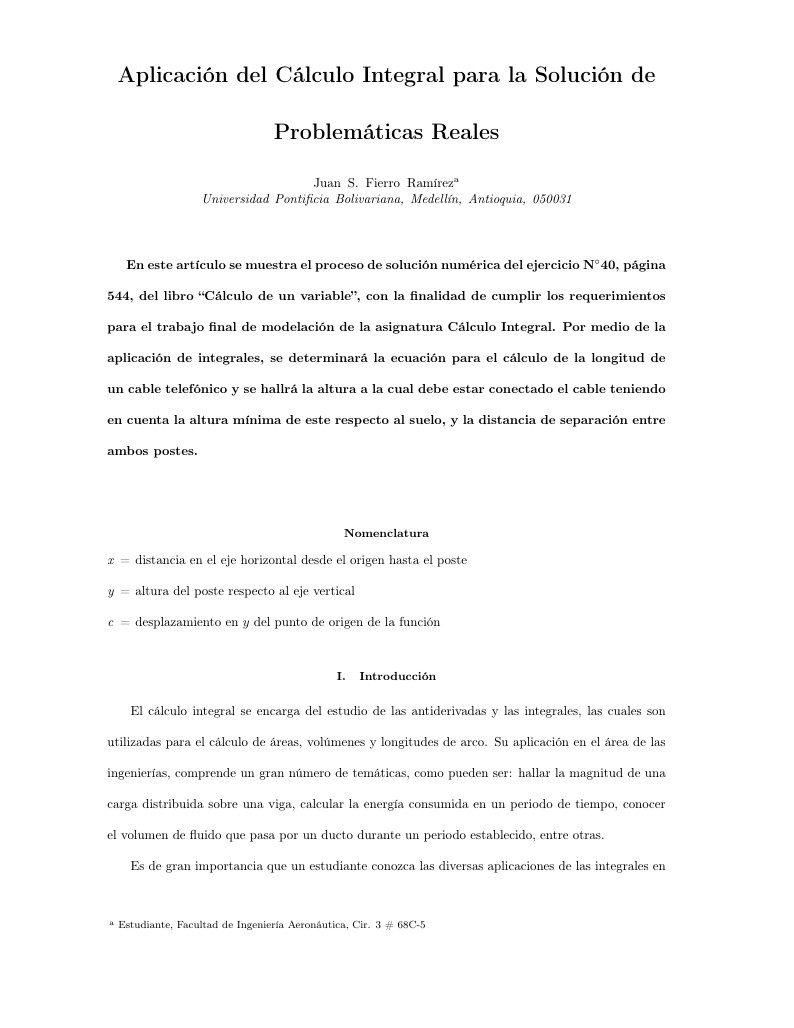
En este artículo se muestra el proceso de solución numérica del ejercicio N°40, página 544, del libro "Cálculo de un variable'', con la finalidad de cumplir los requerimientos para el trabajo final de modelación de la asignatura Cálculo Integral. Por medio de la aplicación de integrales, se determinará la ecuación para el cálculo de la longitud de un cable telefónico y se hallará la altura a la cual debe estar conectado el cable teniendo en cuenta la altura mínima de este respecto al suelo, y la distancia de separación entre ambos postes.
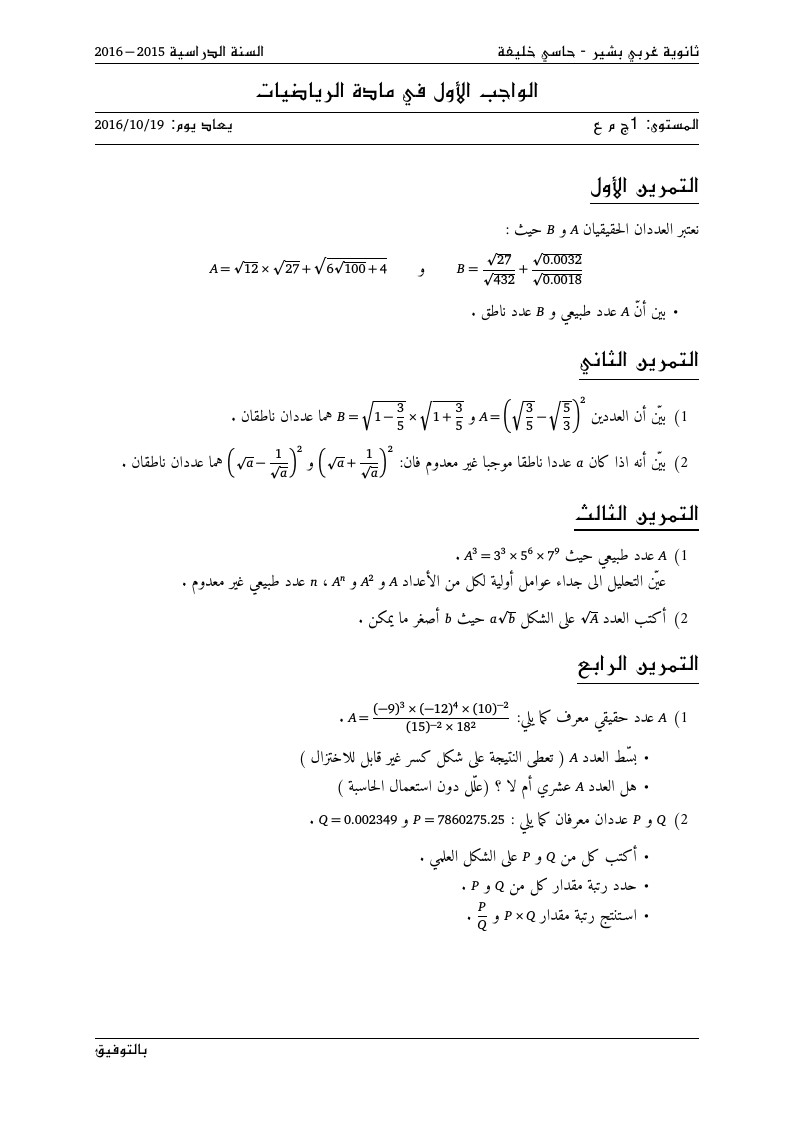
devoir 1 ere annee niveu lycee
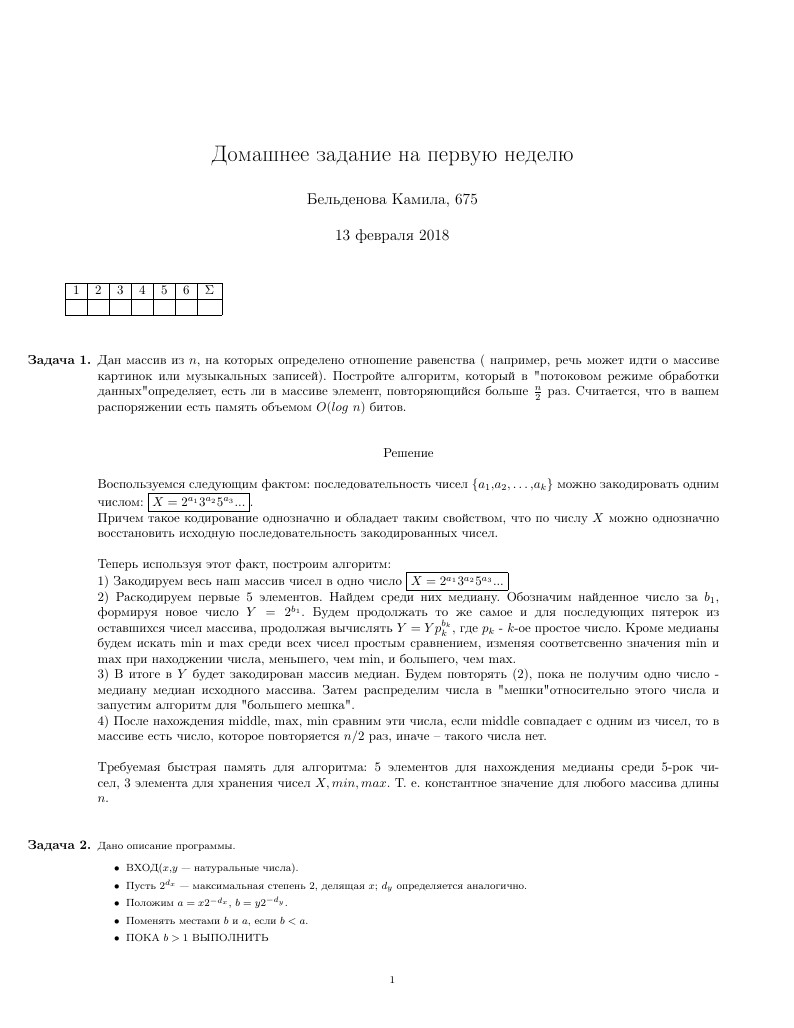
#maths #russian #homework
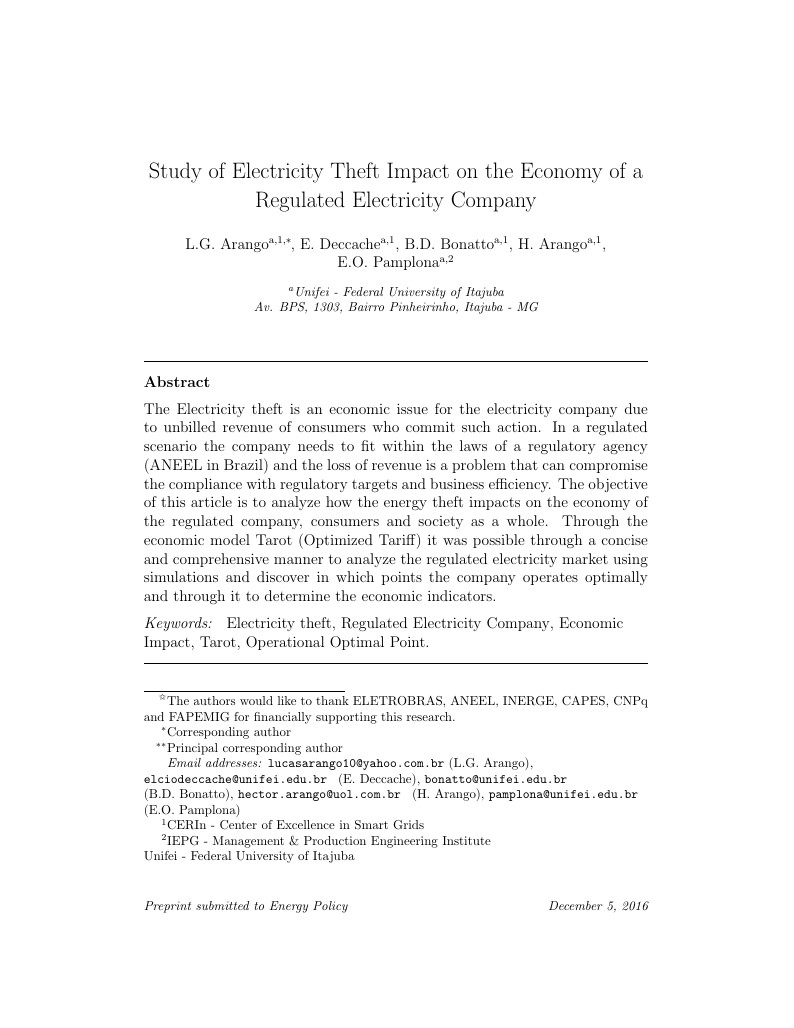
The Electricity theft is an economic issue for the electricity company due to unbilled revenue of consumers who commit such action. In a regulated scenario the company needs to fit within the laws of a regulatory agency (ANEEL in Brazil) and the loss of revenue is a problem that can compromise the compliance with regulatory targets and business efficiency. The objective of this article is to analyze how the energy theft impacts on the economy of the regulated company, consumers and society as a whole. Through the economic model Tarot (Optimized Tariff) it was possible through a concise and comprehensive manner to analyze the regulated electricity market using simulations and discover in which points the company operates optimally and through it to determine the economic indicators.
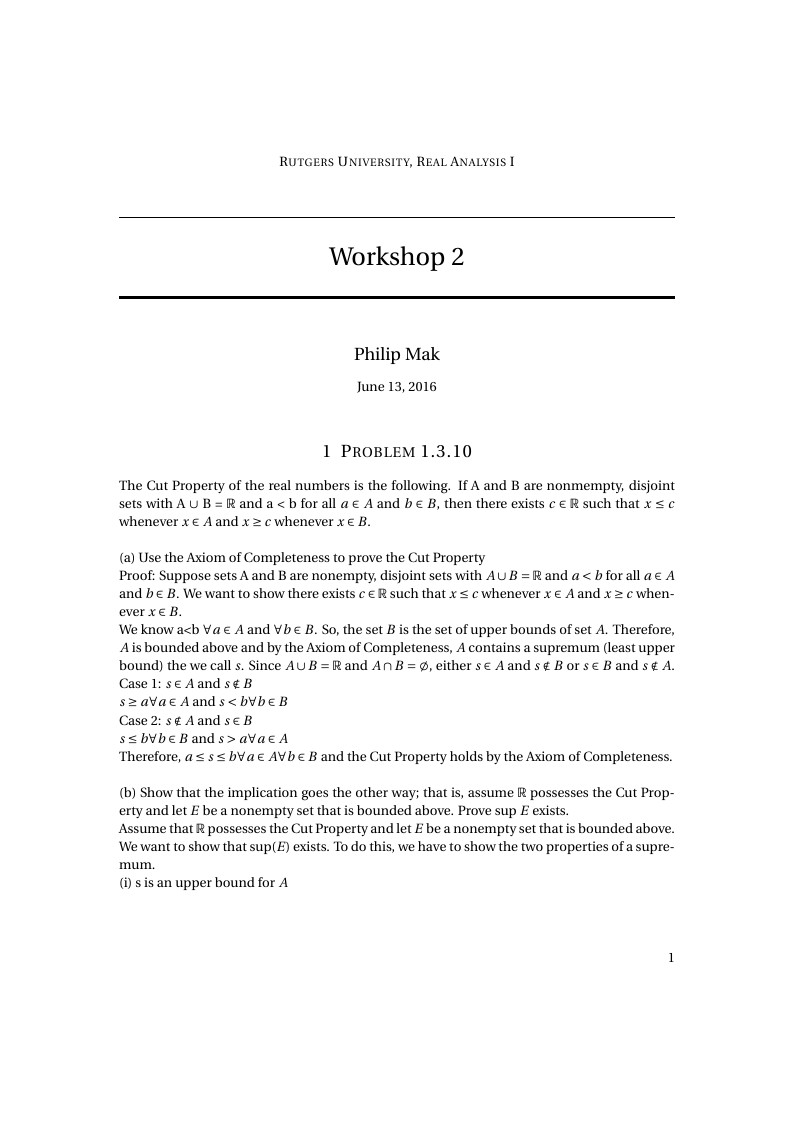
Real Analysis Workshop 2 1.3.10
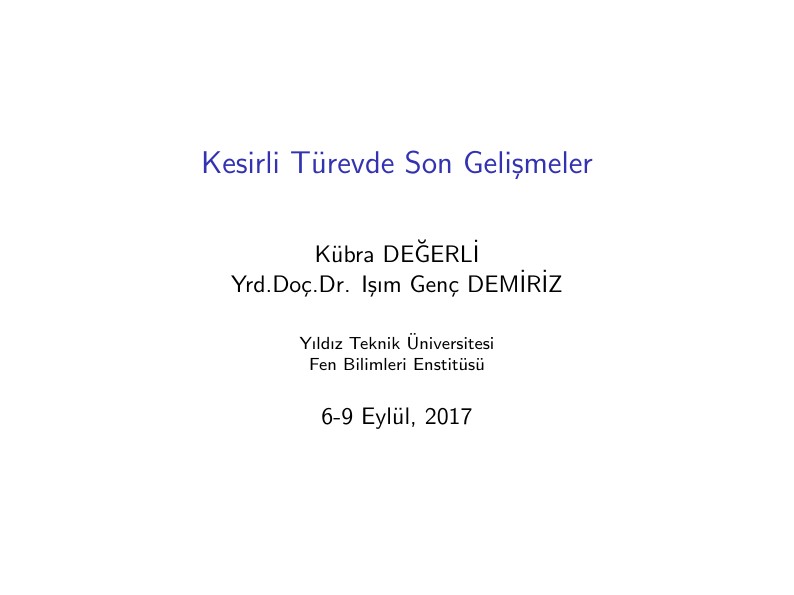
Fractional Tufteffect Final Gates
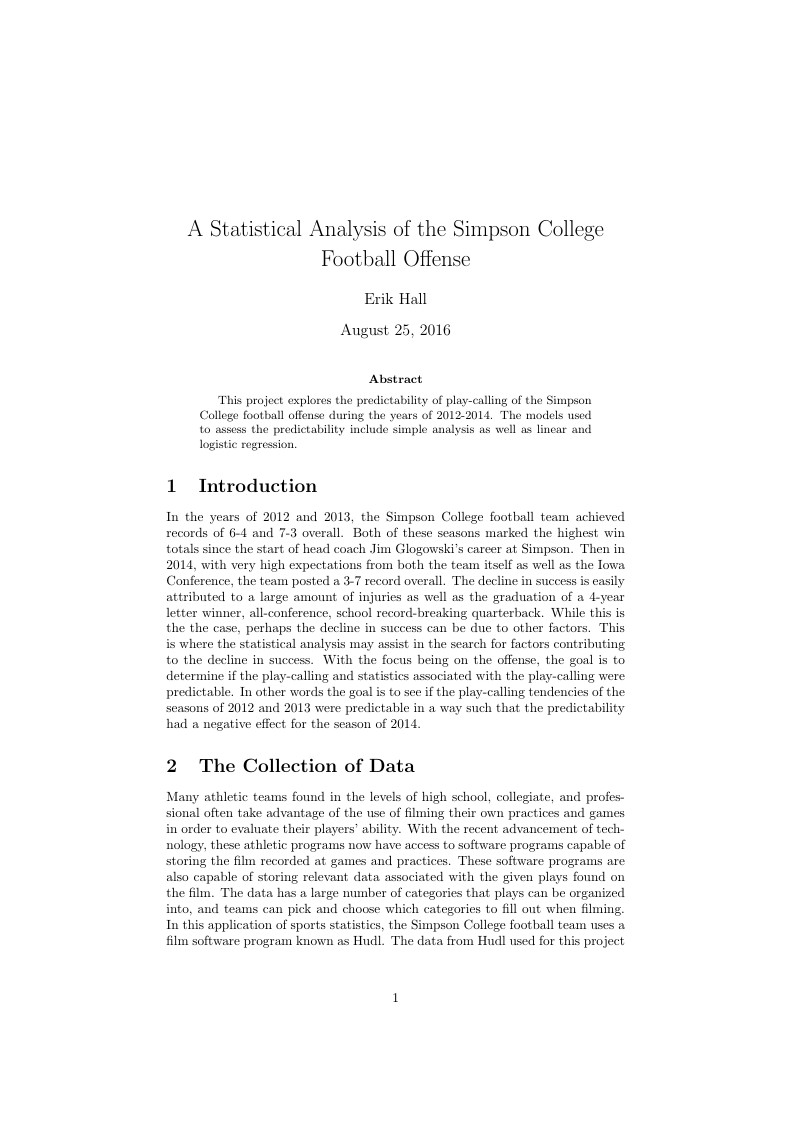
This project explores the predictability of play-calling of the Simpson College football offense during the years of 2012-2014. The models used to assess the predictability include simple analysis as well as linear and logistic regression.
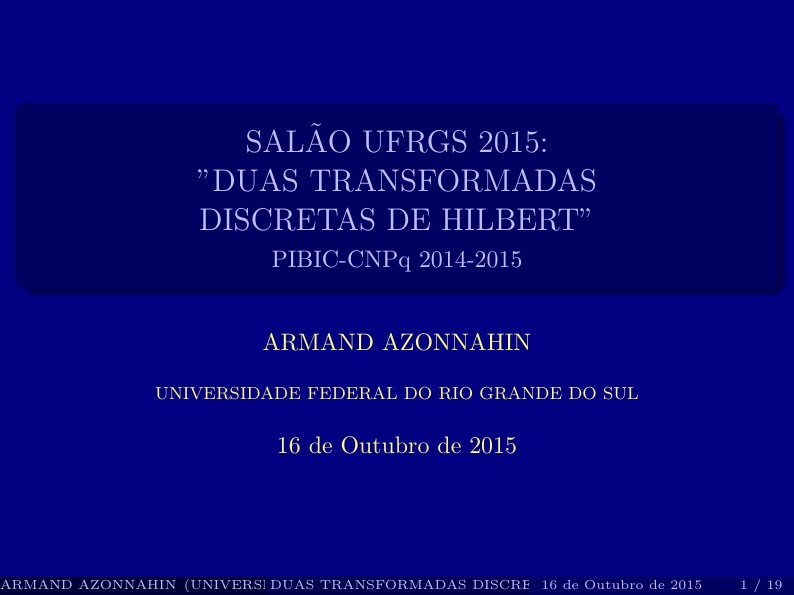
Nas condições de Nyquist, provamos que a Transformada Discreta Sequencial de Hilbert Hd possui as mesmas características que a Transformada Contínua de Hilbert . Em particular ela é a Média de uma família de Operadores Diádicos Discretos (Operadores Ш).
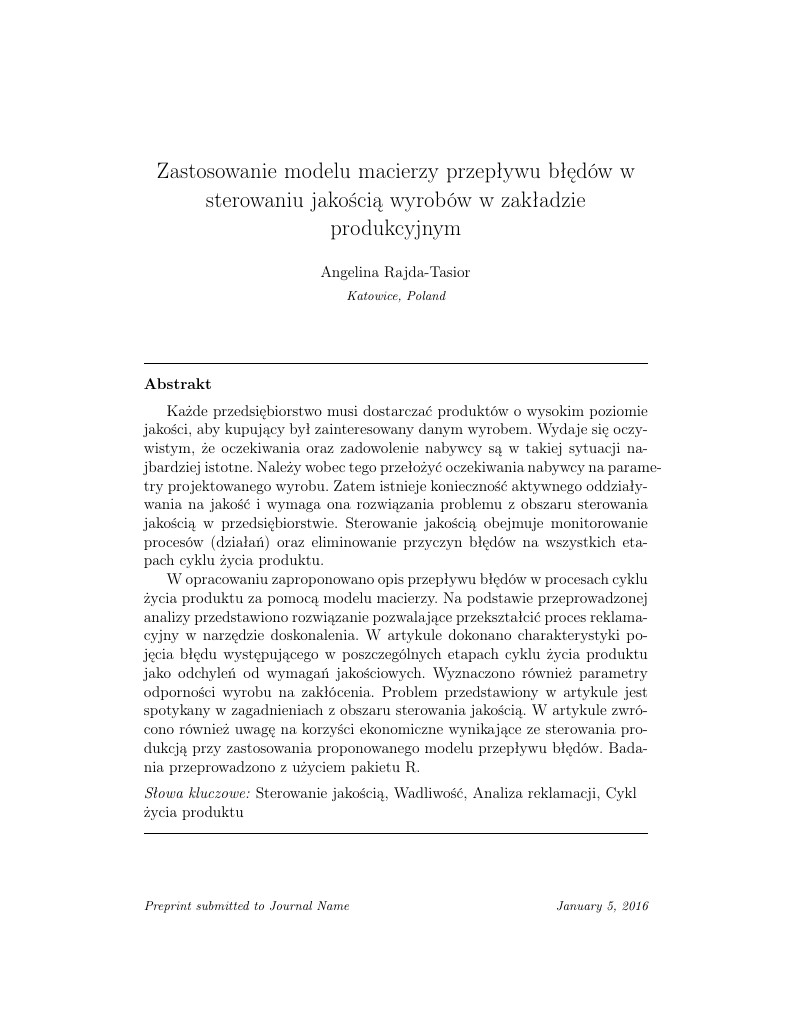
Każde przedsiębiorstwo musi dostarczać produktów o wysokim poziomie jakości, aby kupujący był zainteresowany danym wyrobem. Wydaje się oczywistym, że oczekiwania oraz zadowolenie nabywcy są w takiej sytuacji najbardziej istotne. Należy wobec tego przełożyć oczekiwania nabywcy na parametry projektowanego wyrobu. Zatem istnieje konieczność aktywnego oddziaływania na jakość i wymaga ona rozwiązania problemu z obszaru sterowania jakością w przedsiębiorstwie. Sterowanie jakością obejmuje monitorowanie procesów (działań) oraz eliminowanie przyczyn błędów na wszystkich etapach cyklu życia produktu. W opracowaniu zaproponowano opis przepływu błędów w procesach cyklu życia produktu za pomocą modelu macierzy. Na podstawie przeprowadzonej analizy przedstawiono rozwiązanie pozwalające przekształcić proces reklamacyjny w narzędzie doskonalenia. W artykule dokonano charakterystyki pojęcia błędu występującego w poszczególnych etapach cyklu życia produktu jako odchyleń od wymagań jakościowych. Wyznaczono również parametry odporności wyrobu na zakłócenia. Problem przedstawiony w artykule jest spotykany w zagadnieniach z obszaru sterowania jakością. W artykule zwrócono również uwagę na korzyści ekonomiczne wynikające ze sterowania produkcją przy zastosowania proponowanego modelu przepływu błędów. Badania przeprowadzono z użyciem pakietu R.
\begin
Discover why over 25 million people worldwide trust Overleaf with their work.